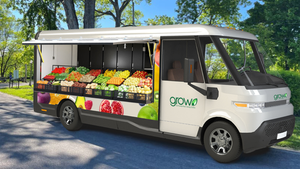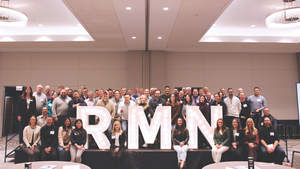Learning as a Lifelong Process
John Ciraulo, a buyer and meat merchandiser for Stater Bros. Markets, has been through two rounds of food industry education, and he's very grateful for the experience. He completed a two-year certification course in 2005 offered by San Bernardino Valley College, and that set the tone and precedent for everything I'm currently doing, he told SN, because it gave me the opportunity
June 8, 2009
ELLIOT ZWIEBACH
SAN BERNARDINO, Calif. — John Ciraulo, a buyer and meat merchandiser for Stater Bros. Markets here, has been through two rounds of food industry education, and he's very grateful for the experience.
He completed a two-year certification course in 2005 offered by San Bernardino Valley College, “and that set the tone and precedent for everything I'm currently doing,” he told SN, “because it gave me the opportunity to continue my lifelong learning process with additional education.
“That's very important in these times, and I believe companies should be more learning organizations than bureaucracies so executives at all levels can continue their educations.”
The four-month Food Industry Management Program he completed at the University of Southern California in mid-2006 reinforced that belief.
“Through Tom Arnold [the recently retired head of the USC program], I learned to not be afraid to fail, which changed my vision in life because it taught me the importance of being able to make decisions on a daily basis without any time to think sometimes — knowledge that challenges all of us who have gone through the program over the years to try more things and to be more innovative in our thinking.”
After completing the USC program, Ciraulo, a district meat manager, was promoted to buyer-merchandiser in the chain's marketing department — responsible for forecasting trends, planning stock levels, monitoring performance, setting price parameters and planning promotions.
“The USC food business simulation class helped me exponentially in those areas because it exposed me to running an entire store,” he told SN.
In September 2007, Ciraulo moved back into the meat and seafood area as meat merchandiser for the chain, in charge of special projects within the department and reporting to the vice president of meat and seafood, Kevin Schubert, who is mentoring Ciraulo for an executive leadership position with the company, he said.
Both the certification program and the Food Industry Management Program at USC are sponsored by the Western Association of Food Chains.
Ciraulo, 41, began working for Stater Bros. as a meat wrapper in 1986 and progressed to meat cutter, meat manager and district meat manager.
He pursued a vocational teaching credential so he could instruct apprentice meat cutters, he noted. “The meat industry has changed so much — we're still called butchers, but really we're skilled meat cutters dealing with packaging and presentation, so it's an art.”
Working on the credential prompted him to compete his undergraduate degree at the San Bernardino campus of the University of Phoenix, after which he continued his education by enrolling in the food industry certification program through San Bernardino Valley College — a 10-course program consisting of one class a week over two years offered on-site at Stater Bros. to a class of 30 students.
“These certification programs are available through WAFC at various community colleges to future leaders in the food industry — people who will set a good example for other employees. And I think it's admirable that Stater cares enough to offer educational opportunities for employees to learn and to better themselves through these certificate programs.”
Don Baker, who was president of Stater Bros. at the time, suggested Ciraulo apply to the USC program “because he knew how important and prestigious that program is as a training ground for future leaders and he understood how much that could help me in my career goals,” Ciraulo explained.
One of the issues Ciraulo worked on six months ago was finding an alternative to the manual recording of meat waste in the bone barrels to better track shrink.
“With the marketing and management information systems departments at Stater working together — using the kind of teamwork we were encouraged to pursue at USC — we found a software program that can track the items that are thrown away more accurately to determine the actual shrink. That helped strengthen our work-flow processes and helped save time.”
Going through the program at USC made him part of a fraternity, Ciraulo said.
“All of us who went through the program know it was a stepping-stone in our careers,” he said. “But beyond that, there are connections with people that I would not have had otherwise — an invisible kind of respect knowing what we all shared with each other.
“There were 32 of us in the class who came together as strangers and competitors, but by the end of the course, we were like brothers and sisters, and we left as a family within the food industry.”
JOHN CIRAULO
TITLE: Meat Merchandiser, Stater Bros.
EDUCATION: Certification course, San Bernardino Valley College; Food Industry Management Program, University of Southern California
About the Author
You May Also Like






